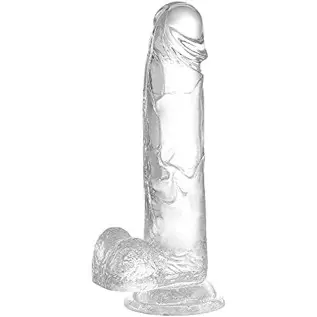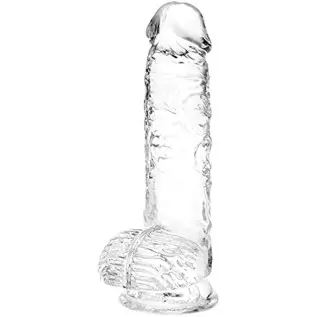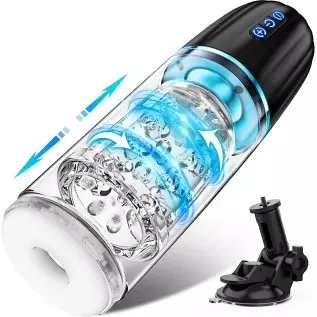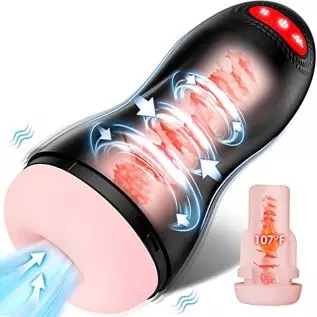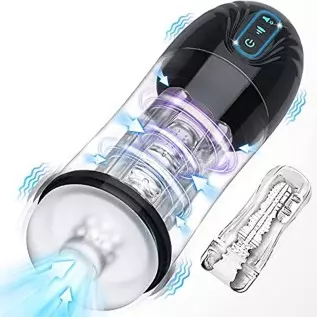Are there advantages or disadvantages to removing body hair from private parts?
The role of private hair
It has long been believed that pubic hair may be a remnant of the furry period in human evolution. However, the question is why hair in other parts of the human body has disappeared. ? One theory is that these thicker hairs gather around the parts of the human body that have apocrine sweat glands (apocrine sweat glands) and eccrine glands. It may be used to spread special smells (pheromone pheromones decomposed by bacteria) and emit sexual mature signal. In addition, in the primitive era when humans did not wear pants, the dense pubic hair not only kept warm, but also protected the vulva. In sexual life, the main function of pubic hair is to buffer the friction during sexual intercourse, because the mons pubis, the growth site of pubic hair, is one of the stress points during sexual intercourse.
Is hair removal on private parts good or bad?
Some scholars believe that retaining pubic hair is detrimental to private hygiene to a certain extent. Because in modern society, humans not only have outer pants, but also underwear. At this time, the pubic hair covers the vulva, which will always keep the vulva in a warm and humid environment, which may encourage mold, trichomoniasis, pubic lice and various pathogenic diseases. Derived from bacteria.
A British study from 1997 to 2003 showed that shaving vulva hair can reduce the incidence of pubic lice. Pubic lice are parasites that can be spread through sexual contact. They mainly live on the hair around the pubic area and anus. Removing the host site of pubic lice is one of the ways to treat and cut off their transmission route.
However, removing pubic hair brings many other health problems. Since the skin of the private parts is delicate and has many wrinkles, hair removal may lead to more skin wounds, allergies and infections. The occurrence and severity of these complications are not only related to personal constitution, but also to the hair removal method chosen. Blade scraping is more likely to cause scratches, while laser hair removal is more likely to cause burns and skin pigmentation.
In general, the complications that may occur when cleaning private hair are mainly as follows:
Skin scratches: Using a dull blade or operating on dry skin can easily cause skin scratches. . When operating by yourself, it is easier to get scratched due to difficulty in direct vision and many wrinkles in the vagina.
Folliculitis: Folliculitis can occur whether it is shaved with a razor, pulled out with tweezers, or waxed. If combined with infection, it may lead to suppuration or even granuloma formation.
Aggravation of infection: On the one hand, if tiny skin wounds are caused when shaving hair, pathogenic bacteria can easily grow; on the other hand, if there is already an infection in a certain part of the body, such as Staphylococcus aureus , Staphylococcus pyogenes, Pseudomonas aeruginosa, HPV, HSV, molluscum contagiosum, etc. The razor will become a transmission tool, bringing pathogens wherever the razor reaches. People who already have an infection should refrain from hair removal, or at least wait until the infection has healed before trying it again.
Contact dermatitis: Any hair removal and post-shaving products may cause irritation and allergies, leading to contact dermatitis.
Your own choice, a fun choice
In some Western countries, removing hair from private parts has been a popular way of life for many years, but there is still no comprehensive conclusion on the pros and cons.
However, for patients with poor immune status, such as those with poorly controlled diabetes, HIV infection, and those taking immunosuppressive drugs, if an infection caused by hair removal is difficult to control and may be life-threatening, it is not medically feasible. Support hair removal for these people.
For healthy people, almost all health workers believe that whether or not to remove hair from private parts depends on personal choice. You just need to pay attention to hygiene during operation, choose a hair removal method that suits you, and try to reduce complications such as scratches, infections, allergies, etc. caused by hair removal. After all, health is the most beautiful.
People always like the new and dislike the old, so we often change our hairstyles. Are you tired of having the same pubic hair that always stays the same? No beauty salon that specializes in treating pubic hair? Isn’t that even more reason to DIY at home? Choose a hair removal method that suits you and style your pubic hair!
In the hot summer, some women have changed into tank tops, midriff-baring tops, cropped pants, and denim skirts, showing off a different style of summer. But there are also some women who cannot feel comfortable changing into short sleeves, shorts, or skirts because they are worried about their body hair being too thick. For this reason, some people buy hair removal creams and razors, and try every means to remove their thick body hair. Experts recommend that women with thick body hair, especially those with recurring acne, should not rush to shave their body hair and should go to the hospital for examination first. Because behind thick body hair is often hidden a little-known gynecological endocrine disease - polycystic ovary syndrome, and according to incomplete statistics, its incidence rate is as high as 8 to 14% in cities.
Women with heavy body hair may suffer from polycystic ovary syndrome
Thick body hair is mainly related to genetic factors, excess androgen in the body, and changes in some living conditions and habits. Some recent research results show that excessive body hair is not only related to life after birth, but also to insufficient absorption of certain nutrients in fetuses and infants, and overfeeding after birth. However, some women's body weight is caused by polycystic ovary syndrome. If polycystic ovary syndrome causes hirsutism, it is often caused by internal factors acting through external factors, that is, the individual's characteristics are not suitable for living conditions or lifestyles. Including genetic background and insufficient nutrient absorption in fetus and infancy. External factors include overfeeding and bad living habits after birth. These bad habits in life will cause the internal factors formed during the fetus and infancy to explode, resulting in the phenomenon of thick body hair in women.
Bad living habits mainly include irregular eating habits, overeating after hunger, eating oily fried foods, excessive fat intake, unreasonable combination of various nutrients in the diet, and improper nutrition. Good sport etc.
In addition, ovarian tumors, pineal gland tumors, theca hyperplasia and other diseases that cause abnormal secretion of male hormones in the body, as well as various causes of hyperadrenocortical function, such as Cushing's disease, adrenal tumors, congenital Hyperplasia of the adrenal cortex, tumors of the hypothalamus and adenohypophysis, oncocytic adenomas of the adenohypophysis, basophilic hyperplasia and adenomas, etc., may also exhibit hirsutism. Other reasons, such as youthful hypothyroidism, hyperinsulinemia, and taking hormonal drugs, can all lead to increased body hair.
Women should pay attention to thick body hair in areas where they should not grow hair
Some thick body hair is related to family inheritance, such as more hair on the limbs, which is affected by genetic factors. These women Don’t be too anxious. In the same area, the same family, or even the same family, hair growth can vary sooner or later, faster, longer, and in greater amounts for men and women. Differences between individuals exist, and they all fall within the normal physiological range.
But if a lot of long, thick, and black hair grows in areas where women should not grow hair, or the hair is distributed in a male pattern, such as around the lips, mandible, midline of the chest, inner thighs, and around the areola There are varying degrees of hair distribution in other places, the eyebrows are thick and dark, and the pubic hair develops towards the abdomen and even the navel. This phenomenon should be paid attention to. Most of it is related to excessive androgen in the body.
Don’t shave off thick body hair
To treat thick body hair, you must first rule out diseases that can cause abnormal increases in androgens in the body, such as functional ovarian tumors, reduced thyroid function and other endocrine diseases. disease. B-ultrasound examination can reveal that the ovaries are enlarged, the medullary echo is enhanced, and multiple small follicles can be seen, etc., so the common gynecological endocrine disease - polycystic ovary syndrome should be considered. After the examination, drug treatment will be given according to the individual situation. At the same time as the drug treatment, the bad lifestyle should be changed. Eat less high-fat and high-calorie foods, such as potato chips, cream cakes, Western fast food, and carbonated drinks, and eat more whole grains. ; In addition, exercise coordination is also required.
Generally speaking, thick body hair is mainly related to genetic factors and excessive secretion of androgens in the body. If you have more hair on your limbs, armpits, or thick eyebrows, it may be affected by genetic factors. You don’t need to be too anxious about this situation.
If the thick body hair is not caused by a disease, no special treatment is required
You must adhere to good living habits and eat less high-fat and high-calorie foods, such as potato chips, Instead of eating cream cakes, Western fast food, carbonated drinks, etc., you should eat more whole grains, soy products, vegetables, fruits, etc.; in addition, you should also exercise more.
How much "body hair" can reveal about health
1. Soft body hair:
This kind of woman is kind-hearted and considerate of others, even if the man she loves has If he loses to her, she will be loyal to him.
Body hair is thick and slightly curly: this type of woman is very vengeful.
2. Long and thick body hair:
Men prefer this, as it is a symbol of physical strength. A strong body is very masculine, and such a man can often win the favor of a woman. Heart.
3. Body hair is too thick:
If you are a woman, you are more enthusiastic and active, and your sexual desire is relatively strong; when you fall in love with a man, you will love him very passionately and persistently until death.
4. Sparse body hair:
If a man's body is as smooth as a woman's, he not only lacks masculinity, but also has weak energy. Often he will have more than enough energy in sexual intercourse. . If this person has a violent personality, he may be a dangerous person.
5. Thick hair and “strong personality”:
Black and shiny hair is preferred! If a man's hair is thick, it represents strong blood and a strong body. For women, soft and dark hair is preferred, and not too thick. This is because people with thick hair, both men and women, work harder, so they were called poor and humble in ancient times. But today, many people with rice like to do things by themselves, but in the eyes of others, they are more hardworking. . People with this aspect have a tough personality and are strong and decisive.
6. Yellow hair:
If your hair is dry and yellow, it is a sign of bad luck. If you have gray hair in your teens or 20s, you may have a genital defect. If you encounter these two situations, you can use modern hairdressing technology to oil or dye your hair to make your hair smooth and shiny, which will help improve your luck.
7. Eyebrows are sparse:
This kind of woman is more thoughtful and methodical in doing things, but she likes to hide her thoughts and does not dare to express her feelings even when she sees the person she likes. Therefore, Affects marriage luck. If you are a man, your lust will be heavier;





